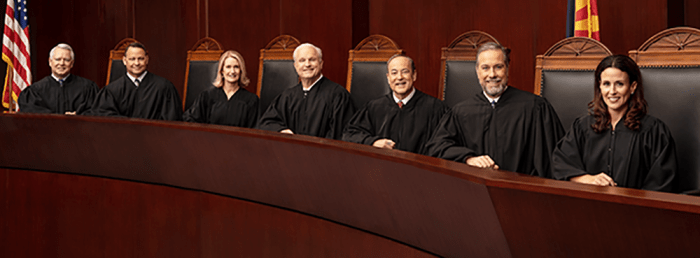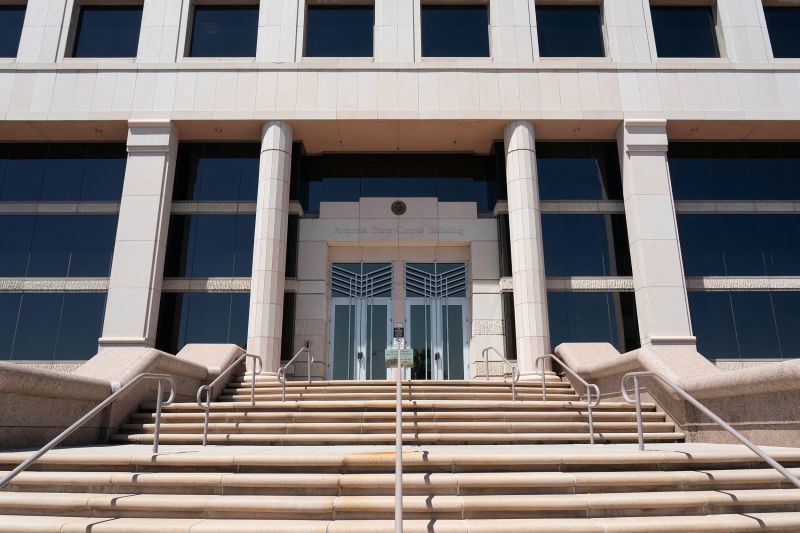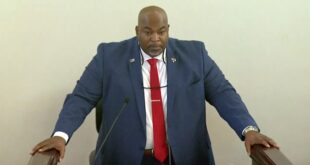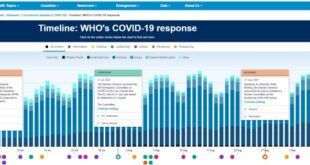Arizona Supreme Court rules nearly 98,000 people whose citizenship documents hadn’t been confirmed can vote in all races. This ruling has sparked a significant debate about voter eligibility and the process of verifying citizenship in the state. The court’s decision, based on a specific legal challenge, has implications for future elections in Arizona and could potentially impact voter turnout and participation.
The ruling revolves around the legal arguments presented by both sides regarding the process of verifying citizenship documents for voter registration. The court’s decision, rooted in legal precedent and interpretation, has raised questions about the balance between ensuring voter eligibility and safeguarding voting rights.
Impact on Arizona Elections
The Arizona Supreme Court’s ruling that nearly 98,000 people whose citizenship documents hadn’t been confirmed can vote in all races has the potential to significantly impact future elections in the state. The decision could affect voter registration, turnout, and the overall political landscape.
Implications for Voter Registration and Turnout
The ruling could lead to a surge in voter registration as individuals previously ineligible to vote now have the right to participate in elections. This could potentially increase voter turnout, particularly in races where the newly eligible voters are more likely to be engaged.
For example, the ruling could have a notable impact on races with a high concentration of Hispanic voters, a group that is often underrepresented in Arizona elections.
Potential for Increased Voter Participation
The increased number of eligible voters could lead to a more diverse and representative electorate. This could potentially shift the balance of power in certain races, as previously disenfranchised voters now have a voice. The ruling could also lead to increased political activism and engagement among previously marginalized communities, as they now have a stronger stake in the electoral process.
Citizenship Verification and Voter Eligibility

Verifying citizenship documents for voter registration is a crucial aspect of ensuring the integrity of elections. This process aims to confirm that only eligible citizens are allowed to vote, upholding the fundamental principle of one person, one vote.
Challenges and Complexities in Verifying Citizenship
Verifying citizenship documents can be a complex and challenging process, involving various factors that can contribute to difficulties.
- Document Authenticity:Determining the authenticity of presented documents is paramount. This involves verifying if the documents are genuine and not forged or altered.
- Document Variety:Individuals may present a range of documents as proof of citizenship, such as birth certificates, passports, or naturalization certificates. Each document has its own unique format and requirements, making verification more complex.
- Data Inconsistencies:Discrepancies in data between different documents or databases can arise, making it challenging to confirm a consistent identity and citizenship status.
- Limited Access to Databases:Accessing national databases to verify citizenship information can be restricted for privacy and security reasons. This limitation can hinder efficient verification.
- Administrative Burden:The process of verifying citizenship documents can be administratively burdensome, requiring significant resources and personnel to manage the process effectively.
Arizona’s Approach to Citizenship Verification, Arizona Supreme Court rules nearly 98,000 people whose citizenship documents hadn’t been confirmed can vote in all races
Arizona has implemented strict voter registration requirements, including a provision that requires voters to provide proof of citizenship. This provision has been subject to legal challenges, with some arguing that it disproportionately impacts certain groups.
Comparison with Other States
Arizona’s approach to citizenship verification differs from practices in other states. Some states have implemented similar requirements, while others have adopted more lenient approaches.
- National Voter Registration Act (NVRA):The NVRA establishes a national framework for voter registration, requiring states to accept federal forms that do not require proof of citizenship.
- States with Proof of Citizenship Requirements:Several states, including Arizona, Georgia, and Kansas, have implemented laws requiring proof of citizenship for voter registration. These laws often require individuals to present documents such as birth certificates, passports, or naturalization certificates.
- States without Proof of Citizenship Requirements:Other states, such as California, Colorado, and New York, do not require proof of citizenship for voter registration. These states rely on voter registration forms that ask individuals to affirm their citizenship status under penalty of perjury.
Public Reaction and Political Debate

The Arizona Supreme Court ruling allowing nearly 98,000 individuals to vote in all elections, despite not having their citizenship documents confirmed, sparked a wave of reactions and ignited a heated political debate. The decision brought to the forefront the complexities surrounding voter eligibility, citizenship verification, and the delicate balance between ensuring fair elections and protecting individual rights.
Public Reactions
The ruling elicited diverse responses from the public, ranging from applause to outrage. Supporters of the decision hailed it as a victory for voter rights and inclusivity, arguing that it prevented the disenfranchisement of individuals who may have inadvertently failed to provide documentation or faced bureaucratic hurdles.
They emphasized the importance of ensuring that all eligible citizens have the right to participate in the democratic process. On the other hand, critics voiced concerns about potential voter fraud and the integrity of elections. They argued that the ruling weakened safeguards against non-citizens casting ballots, potentially undermining the legitimacy of election outcomes.
The debate further highlighted the deep divisions within the electorate regarding issues of immigration and voter identification.
Political Debate
The Arizona Supreme Court ruling fueled an intense political debate, with both sides presenting strong arguments.
Arguments for Voter Eligibility and Citizenship Verification
- Proponents of stricter voter eligibility and citizenship verification emphasized the importance of protecting the integrity of elections and preventing voter fraud. They argued that requiring proof of citizenship is a necessary safeguard to ensure that only eligible voters participate in elections.
They pointed to instances of voter fraud in other states as evidence of the need for robust verification measures.
- They also argued that verifying citizenship is essential to maintaining the legitimacy of elections and public trust in the democratic process. They asserted that allowing individuals to vote without confirming their citizenship could erode public confidence in the fairness and accuracy of election results.
- Supporters of voter ID laws often cite concerns about potential voter fraud, particularly in the context of elections involving close margins or contested races. They believe that these laws deter fraudulent voting and provide a crucial layer of security for the electoral system.
Arguments Against Voter Eligibility and Citizenship Verification
- Opponents of stringent voter eligibility and citizenship verification argued that these measures disproportionately impact marginalized communities, particularly minority groups and low-income individuals who may face challenges in obtaining the required documentation. They pointed to the potential for voter suppression, where these measures could effectively disenfranchise eligible voters who lack the necessary documents.
- They also raised concerns about the burden placed on individuals to prove their citizenship, arguing that it could create unnecessary obstacles to voting and deter eligible voters from participating in elections. They highlighted the potential for bureaucratic delays and administrative complexities in obtaining and verifying citizenship documentation.
Learn about more about the process of Newsom signs California bill to limit ‘addictive’ social media feeds for kids in the field.
- Advocates for voting rights emphasized the importance of ensuring that all eligible voters have access to the ballot box, regardless of their socioeconomic status or immigration history. They argued that restrictive voter eligibility laws undermine the principles of democracy and create an uneven playing field for political participation.
Last Recap: Arizona Supreme Court Rules Nearly 98,000 People Whose Citizenship Documents Hadn’t Been Confirmed Can Vote In All Races
The Arizona Supreme Court’s ruling on voter eligibility has ignited a national conversation about the importance of access to voting and the complexities of verifying citizenship. The ruling’s impact on future elections in Arizona remains to be seen, but it has certainly raised awareness about the need for clear and consistent procedures for voter registration.
This ruling, with its far-reaching implications, is likely to be a topic of discussion and debate for years to come.
FAQs
What specific legal challenge led to the ruling?
The ruling stemmed from a lawsuit filed by a group challenging Arizona’s requirement for voters to provide proof of citizenship when registering to vote.
How does this ruling compare to other states’ practices?
Arizona’s situation regarding citizenship verification is unique, with some states having similar requirements and others with more relaxed regulations.
What are the potential legal implications of the ruling?
The ruling could set a precedent for other states considering similar challenges to voter eligibility laws.
 CentralPoint Latest News
CentralPoint Latest News




